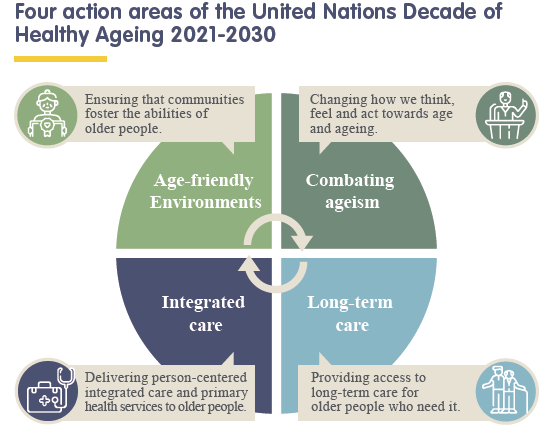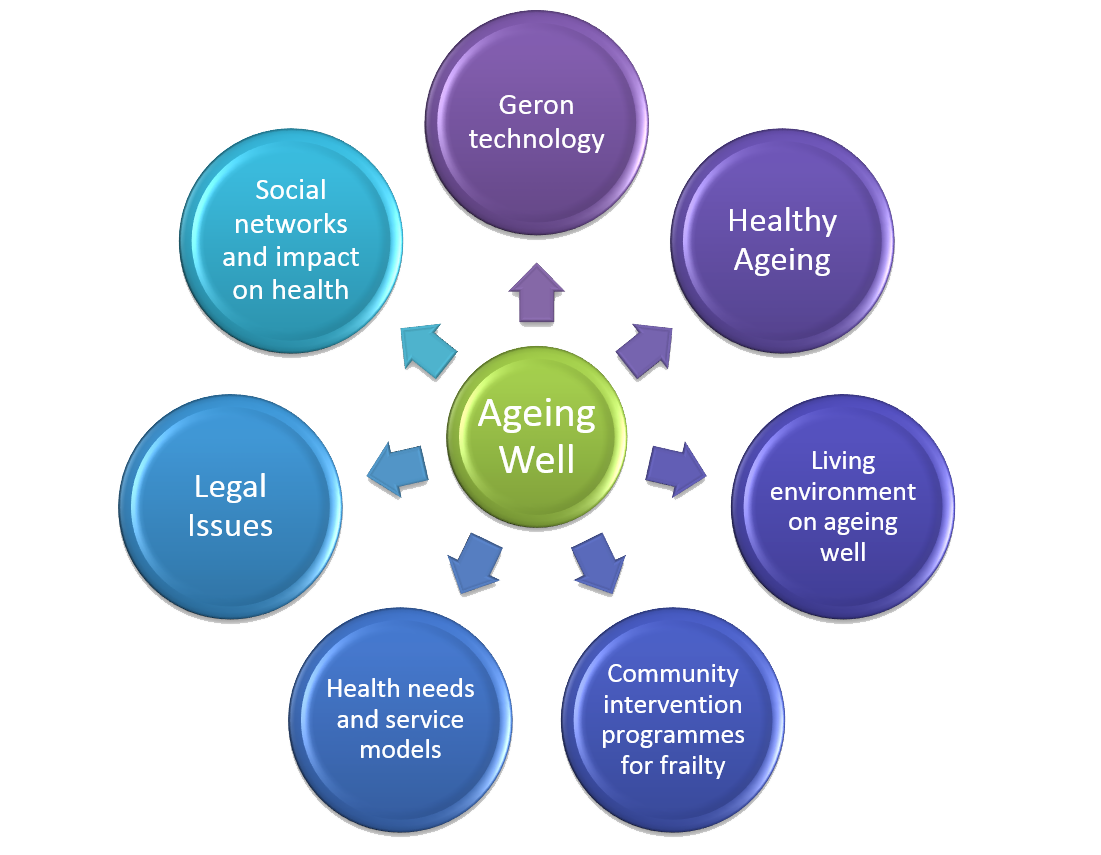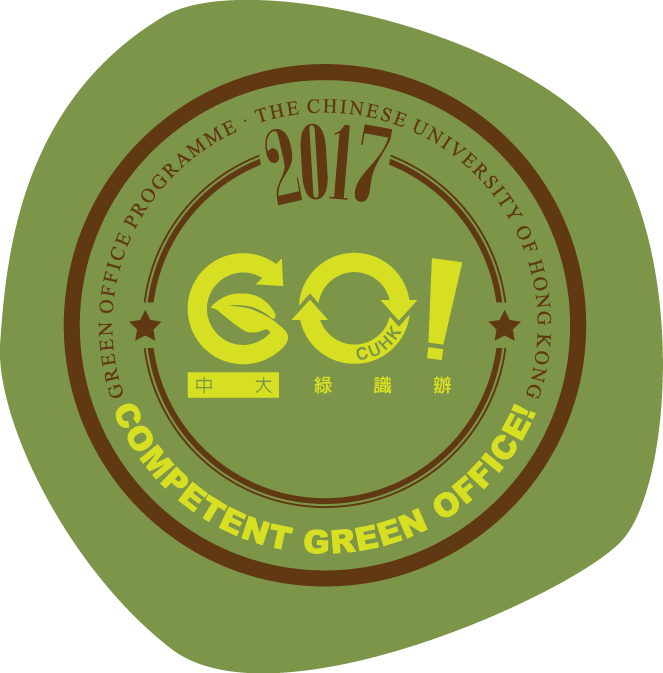HOME
Research Strength on Ageing
The Institute builds on the University's long-standing efforts of ageing researches to develop its research areas.
As early as in 1998, the S.H. Ho Centre for Gerontology and Geriatrics has started developing researches in geriatrics and psychosocial issues. It has reached out to network potential collaborators around the world in 2011 by joining the International Association of Gerontology and Geriatrics Global Ageing Research Network.
Over the years, our geriatricians have a dual role in the Hospital Authority to look after elderly patients in hospitals which enable delivery and evaluation of pilot researches involving patients. New quality improvement initiatives have been introduced which resulted in change in service delivery in areas such as using telemedicine to support residential care homes and applying restraint free reduction in the hospital setting.
CUHK's cooperation with charitable organizations also provides opportunities for research in delivering community projects. For instance, programmes and service models in end of life care and chronic disease management under the CADENZA project have stimulated research studies in tandem with the projects. The CADENZA Training Programme run by the Nethersole School of Nursing of CUHK has trained and raised awareness of the public on wide-ranging issues of ageing population, which could in turn stimulate future research on ageing.
Our professors also pioneer research in various fields through various centres such as dementia (Jockey Club Centre for Positive Ageing); frailty and healthy ageing (Jockey Club CADENZA Hub & Division of Geriatrics, Department of Medicine & Therapeutics, CUHK), osteoporosis (Jockey Club Osteoporosis Centre for Care and Control), the role of exercise and nutrition supplements on sarcopenia, and examining the impact of diet and other lifestyle factors in the prevention of common age-related chronic diseases (Centre for Nutritional Studies). Other areas of research include the development and application of gerontechnology to support active ageing, and draws synergy with similar research by the Shenzhen Institutes of Advanced Technology, an institute jointly established with the University.
People and Collaboration Networks
Affiliated Academics and Researchers
Research Associate (honorary)
Professor Chung Yat Nork, Roger
Research Fellow (by courtesy)
Professor Suzanne Ho
Senior Research Fellow (honorary)
Professor Lee Tze Fan, Diana
Senior Research Fellow (honorary)
Dr. Lo See Kit, Raymond
Senior Research Fellow (honorary)
Senior Research Fellow (by courtesy)
Research Associate (by courtesy)
Research Associate (by courtesy)
Dr. Suey Yeung
Research Associate (honorary)
Researcher Profile
Collaboration Network
| City/Country | Institute | Area/Theme |
| Australia |
University of Adelaide |
Impact of Environment on Health |
| China |
Department of Neurobiology, Geriatrics, and Neurology, Capital Medical University |
Frailty and neurological diseases / cognitive impairment |
| China | The Key Laboratory of Geriatrics, Beijing Hospital and Beijing Institute of Geriatrics | Sarcopenia |
| China | The Shenzhen Institutes of Advanced Technology | Gerontechnology |
| Japan | Department of Human Health Sciences, Kyoto University | Sarcopenia |
| Japan | Institute of Gerontology, The University of Tokyo | Ageing well |
| Japan | National Institute of Advanced Industrial Science and Technology (AIST), Tokyo Institute of Technology | Gerontechnology |
| Korea | Institution of Aging, Ajou University | Health behavioral research, sarcopenia |
| Korea | Seoul National University | Active Ageing Index |
| Korea | The International Association of Gerontology and Geriatrics (IAGG) | |
| Malaysia | Department of Medicine, Faculty of Medicine, University of Malaya | Frailty and sarcopenia |
| Singapore | Alice Lee Centre for Nursing Studies, National University of Singapore | Ageing well |
| Singapore | National University of Singapore | Sarcopenia |
| Taiwan | National Cheng Kung University | Age-friendly City |
| Thailand | Siriraj Hospital, Division of Geriatric, Faculty of Medicine | Frailty and sarcopenia |
| United Kingdom |  Ageing Research at King’s, Ageing Research at King’s, King’s College London |
Brain ageing and mental wellness |
| United Kingdom | Alzheimer's Scotland Centre for Policy and Practice, The University of the Western Scotland | Long-term care, dementia and other later life conditions |
| United Kingdom | Institute of Health and Wellbeing, University of Glasgow | Ageing well indicators and contributory factors |
| United Kingdom | International Longevity Centre UK | Ageing Well |
| United Kingdom | MRC Lifecourse Epidemiological Unit, University of Southampton | Sarcopenia |
| United Kingdom | University of Stirling | Dementia |
| United States | Boston University | Public Health |
| United States | Harvard Medical School Center for Palliative Care | End-of-Life Care |
| United States | Oregon Health & Science University | Osteoporosis |
| United States | Saint Louis University Medical Center, Division of Geriatric Medicine | Frailty, comorbidities, and dementia research |
| United States | The Hastings Center | Health and long-term care systems |
| Sweden | University of Gothenburg | Bone health |
JC Age-friendly City Project - introduction
Age-friendly Community and the Decade of Healthy Ageing
Introduction
The WHO released the action plan for a Decade of Healthy Ageing 2020-2030, which targets for a 10-year sustained and transformative multisectoral collaboration among governments, organizations and agencies, professionals and scholars, and private sectors, with older people at the core of the plan. The Decade emphasizes a life-long approach to healthy ageing to achieve both longer and healthies lives, using a human rights approach observing universality and equity. It also aligns well with the all sustainable development goals proposed by the United Nations, addressing growing concerns over the sustainability of the age-friendly movements. The Decade calls for four areas of action, including ageism, age-friendly community, integrated primary care and long-term care.
Among these areas, the age-friend community directly addresses the importance of creating an age-friendly environment to foster active and healthy ageing. The area recognizes that building age-friendly environments, both urban and rural, is crucial to the intrinsic capacity of older people, as well as maintaining their autonomy, dignity and well-being. Specific actions, including supporting the inclusion of the voices of older people, promoting territory-wide programmes in age-friendly communities, taking evidence-based actions to facilitate intrinsic capacity, and evaluating the outcomes of these actions, are listed under this area of action. Another action area highly relevant to an age-friendly community is ageism, which is the perceived stereotypes and discrimination directed towards others or oneself based on age. Indeed, both ageing and age-friendly community are considered under the same monitoring and evaluation framework of the Decade, implying their close linkage in fostering older people’s well-being. The IOA has been involved in working in all these areas since inception. And the details of our works have been found in our latest book publication “Strategies for creating an age-friendly city: Hong Kong as a case study”.

Research Themes and Publications








